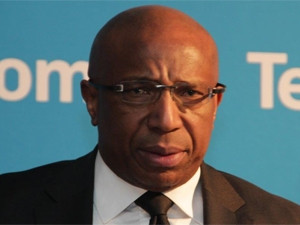
Although Telkom sees its turnaround as finally starting to pay off, analysts warn the company is being outpaced by its competition and there is not much time left, as the group has to urgently grow its income.
Telkom plans to transform and offer new services outside of connectivity, but Vestact analyst Sasha Naryshkine questions whether it will succeed when everyone is offering fibre, and voice still accounts for half the company's income. "Are they going to be able to compete without a monopoly?"
Naryshkine points out, despite its "heroic performance" this year, Telkom's top line has gone backwards when compared to 2010, and its share price, while up this year, is about the same as it was five years ago. He notes Telkom's improved numbers are not operational, and questions where its growth will come from.
Plans in place
Acting CFO Deon Fredericks concedes Telkom had a tough year and, despite hitting targets it set for itself, the ride is not expected to get any easier. However, he says, the group has the "right team" in place.
Fredericks says the company "can't be the Telkom of old", noting consolidation is taking place in the sector, and the group wants to either be big, or the biggest, player in the market. It is "not business as usual" at Telkom, and it will change its focus, putting customers first and focus on profitable revenue streams, he adds.
CEO Sipho Maseko says Telkom will continue to stabilise so it can grow, and will only fund the "right things". He adds the company wants to move outside of just connectivity through value-added services and "change the DNA of the company". Telkom is rolling out fibre to the premises and also wants to grow into adjacent IT markets through partnerships, deals and organic growth, he adds.
Maseko says the group will aggressively migrate its business customers to fibre-based products, and wants to increase its bundled offerings to small and medium companies, as well as be government's lead partner to provide e-platforms, he adds. Even though the company is moving quickly with rolling out its next-generation network, it cannot turn off the legacy system until the last person has been moved, notes Fredericks.
Looking forward
Fredericks says the group has laid the foundation for the future, with a focus on cost-efficiencies, and earnings volatility being removed. In the year to March, it reported flat revenue - at R32.5 billion - and net revenue dropped 0.4%, to R26 billion. However, operating expenses declined 2.1%, and operating income for its core business gained 3.8%.
Telkom needs to trim the decline it is seeing in voice revenue, and will also exit units if they are not profitable, Fredericks says. Voice revenue, at R17.7 billion, now accounts for 54.6% of income, down from 57.7%, while data is fairly stable at 33.8%. During the year, ADSL subscribers grew 6.5%, to 926 944, but fixed-line penetration again dropped, losing 4.8%, to 3.6 million.
Telkom has been challenged by the regulatory environment, industry consolidation and competition, and the "significant pace of technological evolution", says its presentation. The telco itself is taking part in consolidation, with a R2.67 billion bid on the table for listed Business Connexion, while Vodacom has offered R7 billion for Neotel, and MTN bought a majority stake in Afrihost. Analysts expect this trend to continue as convergence within the sector picks up.
Ovum analyst Richard Hurst says, in the current environment, Telkom faces "extreme headwinds" and has a massive battle on its hands to stay relevant, despite the high points in its results. He adds it is now vital for network improvements to come through.
Everyone keeps giving Telkom more time to grow revenue, but "we're going to run out of time just now, and so is Telkom," adds Hurst.
Share